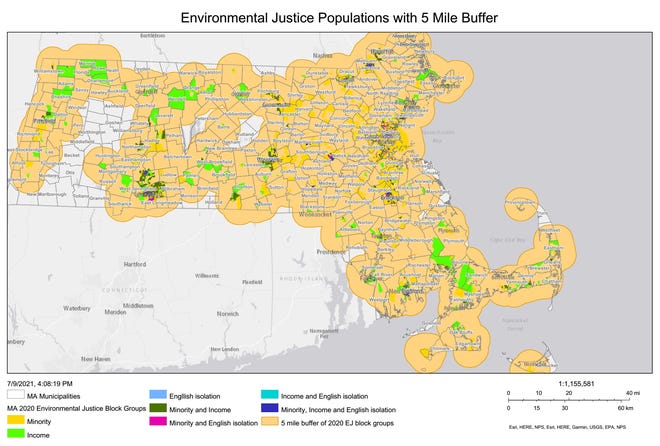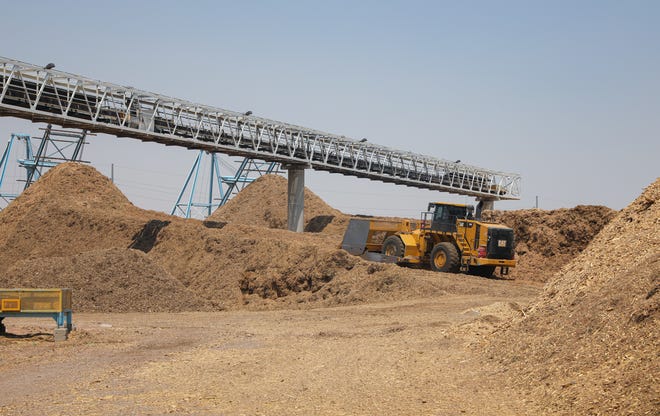State-subsidized wood-burning power plants would be allowed in five South Shore towns if proposed state regulations are adopted.
Cohasset, Scituate, Marshfield, Duxbury and Kingston are among 35 Massachusetts communities that could be affected by the plan.
A new map proposed by the state Department of Energy Resources would protect the other 90 percent of the state's 351 communities from state-subsidized "biomass" power plants, which critics say can cause pollution.
State Sen. Patrick O'Connor, R-Weymouth, and six other legislators sent a letter to state officials asking the Department of Energy Resources to stop considering wood-burning power plants as clean energy sources eligible for state subsidies.
"I honestly think the administration is trying to get out of incentivizing these power plants, but the way they did it left 35 communities vulnerable," O'Connor said in a telephone interview.

The map would create a 5-mile buffer around environmental justice communities, preventing biomass projects in those areas from qualifying for the state's Renewable Energy Portfolio Standard incentive program.
The map would leave stretches of land along the coastline in Cohasset, Scituate, Marshfield and Duxbury, as well as a sliver of Kingston, eligible for a state-subsidized wood-burning power plant. Communities in Western Massachusetts and half of Truro also would be eligible.
O'Connor said the broad definition of what makes an environmental justice community is a good thing, but leaving a few slivers in the state open to such projects defeats the purpose.
O'Connor said he supports other forms of biomass energy, but large-scale, wood-burning power plants are not clean energy, even if they are technically renewable, he said.
The large-scale plants that would be eligible for state incentives under the proposed regulations burn 1,200 tons of wood per day and emit soot and other pollutants, he said.

O'Connor's legislative director, Daria Afshar, said in an email that the state's Renewable Energy Portfolio Standard requires electricity suppliers to obtain a certain percentage of their power from renewables. A biomass plant built in the 10 percent of Massachusetts land available under the regulations would qualify as a renewable energy source.
State law requires that the Department of Energy Resources make biomass facilities eligible for the incentive program.
The newest version of the regulations was in front of the Legislature's Joint Committee on Telecommunications, Utilities and Energy on July 30.
During the hearing, Sen. Jo Comerford, D-Northampton, said wood-burning plants pollute the air, unlike other renewables.
"The logic here in these regulations is tortured," she said. "A biomass plant sited more than 5 miles away from the nearest environmental justice community is not any greener than a biomass plant in Springfield. The location of the facility has never been a factor in (Renewable EnPortfolio Standard Class 1) eligibility. Class 1 should be reserved for the cleanest energy sources."
Original Source: https://www.patriotledger.com/story/news/2021/08/05/south-shore-towns-play-host-wood-burning-power-plants/5452860001/